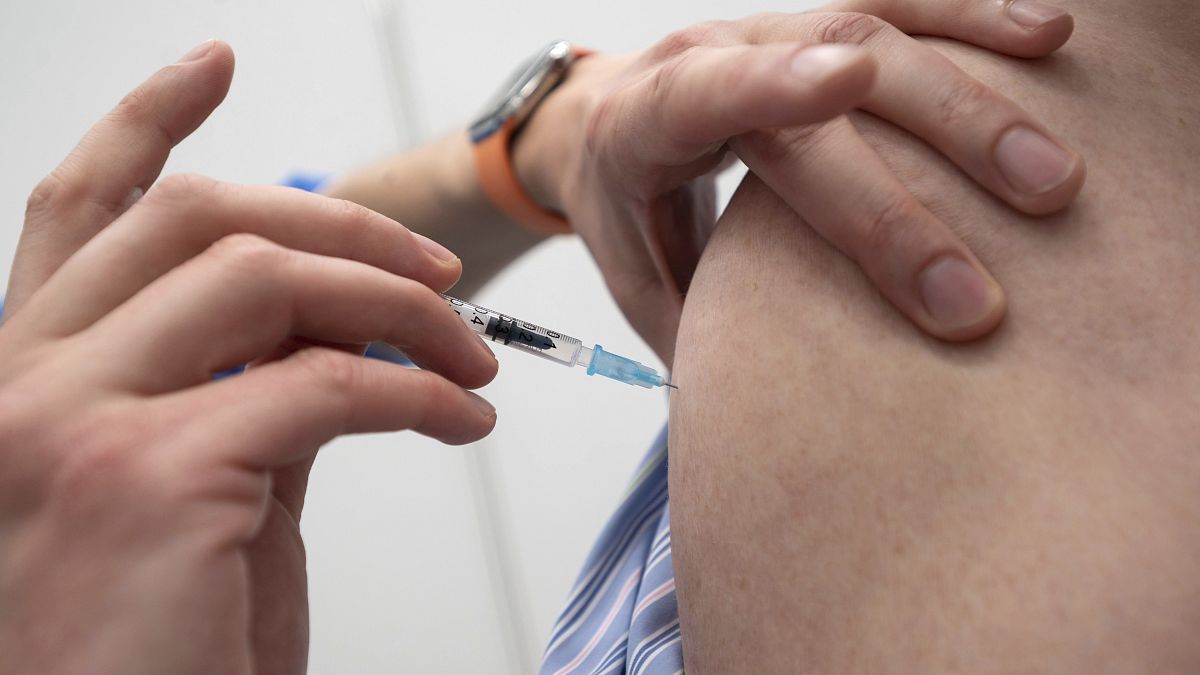In Belgium and Malta, 71% of the population have already received one jab, but in Bulgaria, that figure is just 16%.
Six months since the European Union began its vaccine rollout Brussels says it is on track to meet its target of vaccinating 70% of the population before the end of July, with 58% of Europeans having already received one dose.
In Belgium and Malta, 71% of the population have already received one jab, but in Bulgaria that figure is just 16%.
All member states started with an age-based strategy, making the most vulnerable a priority, but Edoardo Colzani, from the European Centre for Disease Prevention and Control (ECDC), says this isn't the only way to vaccinate populations effectively.
"There is not a single strategy that works better in all contexts and in all places. Whichever strategy, it needs to take into account the situation, the supply of the vaccine, the population at risk, and the epidemiological situation of the disease at any said moment," Colzani told Euronews.
Portugal, Spain, and Ireland are the only EU countries that still haven’t opened up vaccinations to all citizens over 18 years.
The next step for most of Europe is to vaccinate teenagers. The Pfizer/BioNTech shot is currently the only one approved by the European Medicines Agency for use on children aged between 12 and 15 years. The Moderna vaccine is under review, however.
Sophie Lucas, an immunologist from UC Louvain, told Euronews that testing all vaccines before use on youngsters is important, as they can potentially react differently to adults.
"They are not mini-adults. They have their own way to react to vaccines, so it is really important to test vaccines in different age ranges to determine the dose of vaccine that is appropriate, for example, under twelves. And to be sure, to demonstrate objectively that the efficacy and the security of the vaccines are equivalent under twelve that they are above twelve," Lucas told Euronews.
She added that teenagers are not among the most vulnerable of the population, but their vaccination can still have "many benefits".
"In addition to individual advantages for kids there are also, obviously, collective advantages because it seems more and more obvious that vaccination will reduce the risk of transmitting the viral disease and even if teenagers particularly don’t get severe forms of the disease, they are reservoirs for this virus and they can contribute to transmitting it," Lucas said.
"So decreasing transmission by youngsters below 18 can be extremely useful from the collective point of view."
Countries like Germany, Romania, Italy, France, and Estonia have already opened up vaccinations for all citizens over 12 years old.


